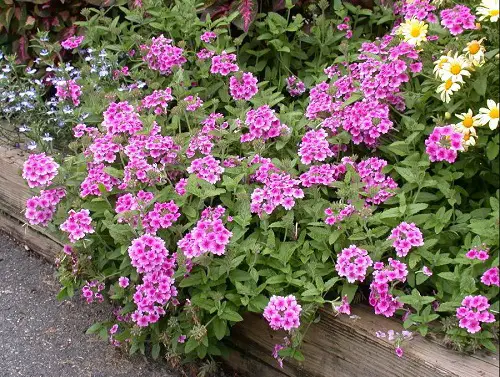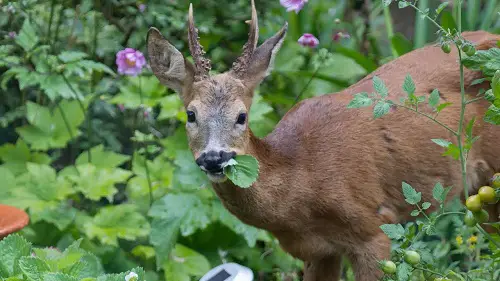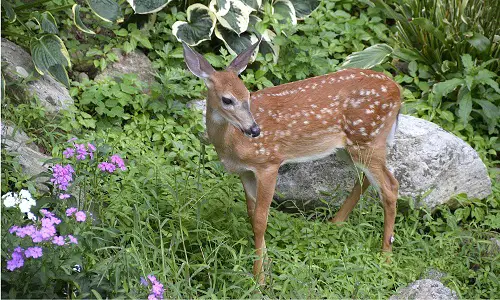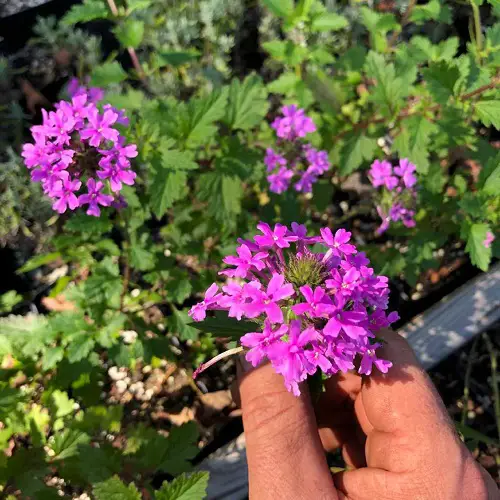Do Deer Eat Verbena? Is Verbena Deer Resistant? If you have similar questions in your mind, then we have the answers for you!
If you live in an area with a healthy deer population, you may wonder if those graceful creatures are the culprits for destroying your verbena plants. Specifically, you might ask yourself: Do Deer Eat Verbena? Is Verbena Deer Resistant? Let’s dive into this question and find out!
Verbena Plant Details
Verbenas are a part of the Verbenaceae family and are hardy plants native to both the Americas. There are a ton of Verbena varieties with beautiful flowers in purple, pink, white, red, and even blue shades.
The leaves of this lovely plant are no exception; they can be hairy or smooth and toothed. They’re perfect for garden borders, hanging baskets, and rock gardens and are also used in herbal medicine for their purported calming and soothing properties.
Do Deer Eat Verbena?
The short answer is Yes! Verbenas attract many pollinators and bees to the garden. Even deer.
Deers eat many different plants and Verbenas are no exception so if they’re common in your area, chances are, they’ll find their way into your garden and snack on your Verbenas.
Is Verbena Deer Resistant?
Deer don’t go running straight for your Verbena flowers, if that’s what you’re wondering. They usually leave these plants untouched if there are other options available, but they may not be able to resist when hunger strikes.
According to Rutgers University’s rating scale, Verbena is typically “Seldom Severely Damaged,” which roughly means that it is not a top choice for deer when there are other, more enticing plants around.
If you really love your Verbenas, you can plant a few tempting plants for deer that will keep them busy and away from your flowers.
Verbena Growth Requirements
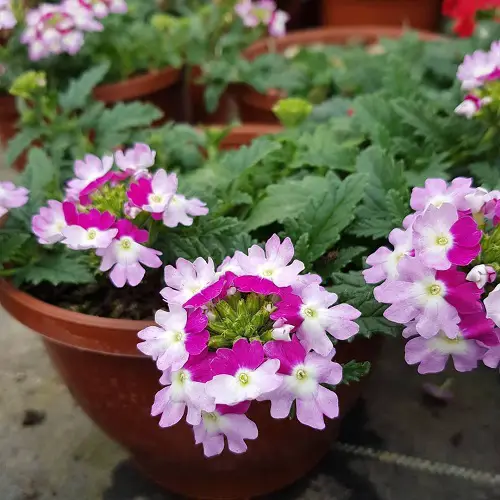
You can grow Verbenas easily by paying attention to the following.
1. Light
Verbenas need full sun to grow and flourish and give the best flowers. You need to give them at least 6 hours of sunlight every day, although 8-10 hours is ideal and even better.
2. Water
They like to be kept in moist soil, but it shouldn’t be waterlogged. Give them a good soak, and then let the soil dry. Check the topsoil, and if the first inch or two is dry, water it again. It’s typically twice a week.
3. Soil
Getting the soil ready for growing Verbenas is really easy. Just add a part of perlite or coarse sand for every 3 parts of a good quality potting mix, and you’ll have the best recipe to keep Verbenas thriving. In case you’re wondering, perlite is for soil aeration and drainage.
4. Temperature
Verbena is a warm-weather plant that thrives between 70 and 95°F (21-35°C). It can tolerate a light frost but cannot survive a hard freeze, so if the temperatures fall drastically in your hometown, it is better to bring them indoors.
5. Fertilizer
Verbenas aren’t heavy feeders, so you’ll need to be a bit careful with the fertilizer. For the Verbenas in a soil bed, go for a balanced, slow-release fertilizer for flowering plants once a month during the blooming season (usually spring to fall).
If you’ve planted them in containers, use a water-soluble fertilizer formulated for flowering plants every two weeks during the blooming season.
6. Pruning
Early spring is the best time to prune Verbenas, so cut back the stems during this time. This will lead to a bushier plant. Also, throughout the growing season, deadhead the spent flowers– this will ensure continuous blooming.
How to Keep Verbena Safe From Deer?
There are many simple ways you can keep your Verbena safe from deer.
The first and most obvious one is to install a physical barrier. A fence or netting around the garden or flower bed will do. Also, add a couple of deer-resistant plants, like lavender or coneflowers, around the Verbena.
This is enough, but if they don’t seem to work, you can use noise or light deterrents. Your best bet is motion-activated sprinklers or solar lights to scare the deer away.


